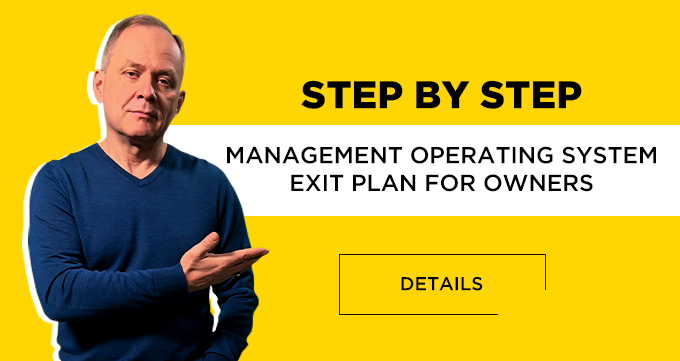How the Owner of a Manufacturing Company Stopped Answering 100 Calls a Day and Got His Life Back
Metalekspo, a company that produces copper and brass granules, has been operating in the Latvian market for over 20 years. Denis Ulyanov, its owner, always strived for growth and production development. The company consistently showed a turnover of about 70 million euros per year, but Denis himself saw that the management structure was not keeping pace with the scale of the business.
At some point, he realized that he himself had become the main limitation to growth: the team depended on him, all decisions passed exclusively through him, and any new employee only increased the flow of tasks and calls.
When Denis saw the advertisement for Business Booster and heard about a positive experience with the program from an acquaintance, he decided to figure out how to escape the role of a director and move to full-fledged management as an owner.
Starting Point
Despite the experience and strong production base, the company operated without a unified management model. The structure existed only on an intuitive level. Functions overlapped, some processes depended solely on Denis, and team growth did not lead to increased efficiency. He took up to a hundred calls a day, and every decision required his involvement—from hiring to shipments.
Denis recalls: "I realized I was launching a second business, but the old one was working on me, not on the structure. I couldn't move forward like this." This became the starting point for change.
What Changed in Two Years with Business Booster
Training at Business Booster allowed Denis to assemble the scattered elements of management into a cohesive working model. Here are the key changes achieved:
- After working on the organizational chart, it became clear which roles were truly needed and which created chaos. A distribution of functions and areas of responsibility emerged.
- Denis changed his owner's mindset, stopped solving problems for employees, and began to define roles instead of performing them himself.
- The company gained an Executive Director who took over operational management. Denis was no longer the center of all decision-making.
- Based on the analysis, 30% of unprofitable areas were eliminated—this freed up resources and increased marginality.
- The flow of calls decreased from 100 to 15 per day. This was an indicator that processes stopped "collapsing" without Denis's involvement.
- Production and management efficiency increased by approximately 20% thanks to planning, metrics, and process transparency.
Denis notes that for the first time in many years, he was able to go on vacation calmly and not check his phone every half hour.
The Owner's Feelings and Conclusions
The changes became not only a managerial shift but also a personal liberation for Denis. Instead of constant tension, there was clarity, calm, and the ability to look at the business from a higher perspective.
"I stopped being the place where everything stops. The company works without my involvement in daily tasks. This is a huge step forward," admits Denis.
He also emphasizes that the training was an investment that paid for itself in the first year: the company improved manageability, increased efficiency, and freed up his time for strategic tasks.
Today, Metalekspo operates on a systemic model, and Denis is focused on developing a second business and new ventures, without returning to operational chaos.
Conclusion
Denis Ulyanov's story is an example that a system is necessary even for successful and profitable manufacturing companies. Stability is not an indicator that the business is working efficiently. It is important that it can grow without the constant involvement of the owner.
If you feel that the company is scaling slower than you would like, or is overly dependent on you for daily issues, it is a signal that it is time to build a structure. Business Booster helps owners navigate this journey step-by-step, just as Denis did.

